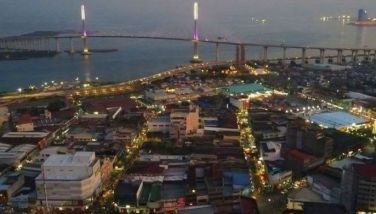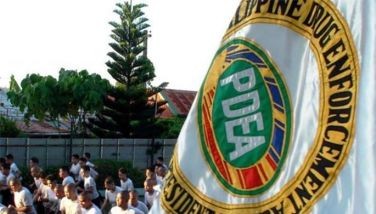CESAFI to CA: Bar RTC from making boy play
CEBU, Philippines - The Cebu Schools Athletic Foundation, Inc. (CESAFI) has asked the Court of Appeals (CA) not to allow high school basketball player Scott Aying from playing in the 2013 Junior Basketball League.
Lawyers Baldomero Estenzo and Gerry Robertson Mira, representing CESAFI, said Judge Simeon Dumdum Jr. of Regional Trial Court Branch 7 acted without or in excess of his jurisdiction when he issued an order allowing Aying to play in the tournament despite non-compliance with CESAFI’s two-year residency rule.
“The decision of the CESAFI Board of Trustees is final and unappealable. Respondent Judge Dumdum did not have the authority to substitute his judgment for the judgment of the board of trustees of CESAFI, as ruled by the Supreme Court in (similar) cases. His act of substituting his judgment is done without or in excess of his jurisdiction and/or with grave abuse of discretion amounting to lack or excess of jurisdiction,†the petition reads.
Estenzo and Mira asked the Appellate Court to annul Dumdum’s temporary restraining order (TRO) dated Sept. 16, 2013, amended TRO dated Sept. 18, and order dated Sept. 30 granting the writ of preliminary injunction requested by Aying’s parents Davilo and Avah.
CESAFI President Fr. Manny Uy, Commissioner Felix O. Tiukinhoy, Jr. and screening committee members Jess Himotas and Danny Duran were also named petitioners in the motion.
They said Dumdum acted in excess of his jurisdiction and despite Aying’s alleged failure “to show a clear and immutable right.â€
“We submit that private respondent has no clear and immutable right to speak of in the first place. In fact private respondent miserably failed to show even a mere semblance of a right to justify the issuance by a court of a writ of preliminary injunction,†read the petition read.
It also said Aying was not denied of his right to play.
“Clearly, private respondent was not denied of his right to play as a child as he can play anywhere and anytime he wants. However, his insistence of a right to play in the 2013 CESAFI basketball season is an entirely different matter,†the petitioners said.
They added that that playing in the CESAFI is not a right but a privilege granted only to those who qualify under the rules governing the tournament.
They said that in granting the petition of the Ayings, Dumdum committed “an unwarranted judicial interference in the internal affairs†of the CESAFI.
Estenzo and Mira said the CESAFI decision not allowing Aying to play in the tournament is not subject to judicial review. The CESAFI decision, they added, was even accepted by Aying’s school when it did not allow him to play in the elimination rounds.
The CESAFI asked the appellate court to prevent Dumdum from implementing the TRO and the writ of preliminary injunction he issued.
Lawyer Donato Gonzales, Aying’s legal counsel, earlier said that his client was not given due process when he was disqualified to play. Gonzales said seeking the assistance of the court was not an attack against CESAFI rules but a request for the court to enlighten the body.
“This is to enlighten them, (CESAFI and its officials) because they have a wrongful interpretation of their own rules. In their guidelines, the two-year residency requirement only applies to college and not to high school,†he said.
Aying was enrolled at the Don Bosco Technological Center, a CESAFI member school, in 2011 to 2012. However, in 2012-2013, he was enrolled at San Beda College, a non-CESAFI member. He then returned to Cebu and enrolled at the University of San Carlos for the 2013-2014 school year. The University of San Carlos-Basic Education Department then included Aying in its basketball team lineup.
However, before the opening of the league, the CESAFI screening committee disqualified Aying from playing citing Section B.5 of the Amended Rules and Regulations for CESAFI 2012-2013 Tournaments.
Dumdum said it was clear that Aying did not violate the rule.
He said Section B.5 plainly states that “any high school student athlete of a CESAFI member school who transfers to another member school shall be required a minimum of a two-year residence to qualify to play.â€
“It is clear that Aying did not transfer from a CESAFI member school, San Beda College, the school in which he enrolled immediately preceding his transfer to the USC. San Beda College is not a CESAFI member school. The CESAFI Screening Committee erred in their interpretation of Section B.5,†Dumdum said.
CESAFI suspended its games until further notice following Dumdum’s order allowing Aying to play. (FREEMAN)
- Latest























